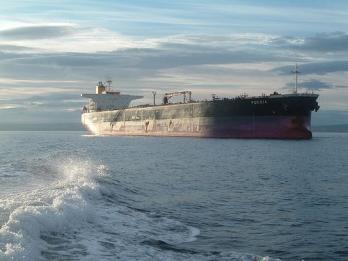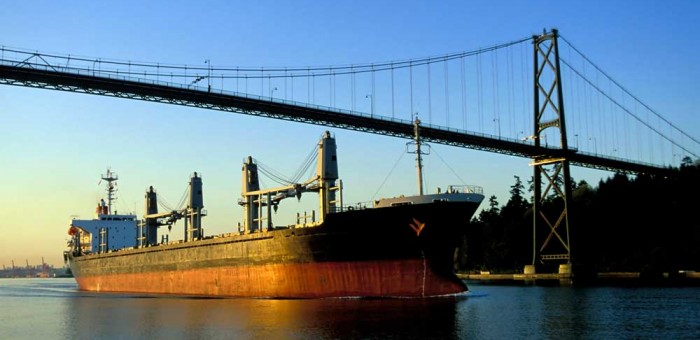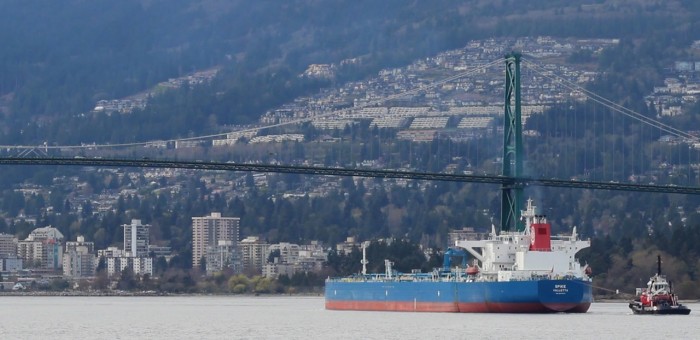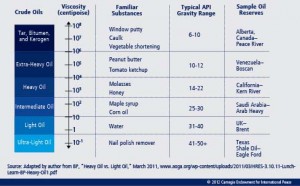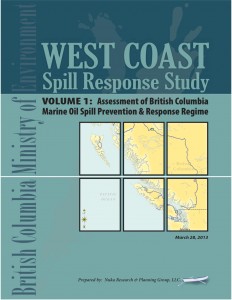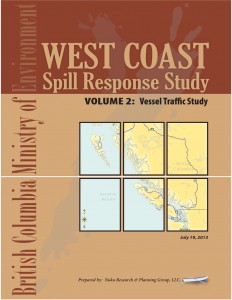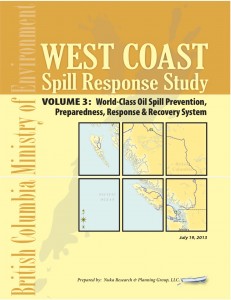Kinder Morgan
Getting Answers from Kinder Morgan
Andrew Weaver, has formally applied as an official intervener for the National Energy Board hearings on the proposed expansion of Kinder Morgan’s Trans Mountain pipeline. Intervener status provides the opportunity to submit evidence, to question the company, experts and presenters on their submissions, and to request the information necessary to ensure the panel reaches a fully informed decision.
As the elected representative of a coastal riding Dr. Weaver has applied to represent his constituents’ concerns on the potential economic and environmental impacts of a marine oil spill, including impacts on private and public property and on local industries such as fisheries and tourism (see below).
As one of Canada’s leading scientists with expertise in physical oceanography, Dr. Weaver has also applied to present and to question evidence surrounding existing response capacity to marine heavy oil spills (see below).
Kinder Morgan is proposing twinning the current pipeline from Edmonton, Alberta to their facility in Burnaby BC, transporting diluted bitumen (dilbit) from the oil sands for export to Asian markets. Currently the pipeline has a capacity of 300 000 barrels per day, with five tankers per month transiting Vancouver harbour, the Salish Sea and Juan de Fuca. The expansion would mean a huge increase to 890 000 barrels per day, resulting in 34 tankers per month.
There already have been concerns raised about the pipeline route and harbour terminal traffic, but a recent report by the Puget Sound Partnership highlighted the risk of a shipping incident potentially causing a marine oil spill. That risk is now considered high (increase of 68%) due to the vastly increased traffic from the Kinder Morgan terminal in Vancouver, expansion at Delta Port and the Gateway Pacific terminal at Cherry Point in Washington State.
Oak Bay – Gordon Head constituents have overwhelmingly voiced concerns about dilbit tanker traffic through the Straight of Juan de Fuca. Any spill in the area would have a dramatic impact for property owners along the foreshore, beach users, local fisheries and tourism. Those concerns have been echoed by residents, municipalities and businesses up and down the coast.
How DilBit behaves in a marine environment is not fully understood, although recent studies have shown it sinks when mixed with sediments, making clean up and recovery extremely difficult. Three years after the Kalamazoo River spill, submerged DilBit is still being pulled from the river bed. How will Kinder Morgan address a marine incident, and potential spill? What are the economic impacts should one occur? How will tides and currents affect the trajectory of a spill, and can submerged oil be recovered? Those questions and more must be answered.
1) Application as the MLA for Oak Bay Gordon Head
As a Member of the Legislative Assembly of B.C., Dr. Weaver represents Oak Bay-Gordon Head (OBGH) on the south-east coast of Vancouver Island. OBGH falls along the proposed route for heavy oil tankers transporting diluted bitumen (dilbit) from the Trans Mountain pipeline to international markets.
Constituents of OBGH have overwhelmingly voiced concerns about dilbit tanker traffic along the coast of their riding. Those who have personal property along the coast and those who use public beaches will be significantly and directly affected by a potential marine dilbit spill. As their elected representative, Dr. Weaver has a responsibility to represent his constituents’ concerns to the panel, to cross-examine other Parties, to request necessary information and to report back to his constituents.
Furthermore, Dr. Weaver is also Deputy Leader of the BC Green Party (BCGP). The BCGP received 28% of the vote on Southern Vancouver Island during the 2014 provincial election, making it a significant representative body for voters throughout the region. As Deputy Leader, Dr. Weaver represents over 45,000 people on Southern Vancouver Island who voted for BCGP candidates who ran on the same platform to raise concerns about dilbit tanker traffic along the coast, many of whom have property directly along the proposed tanker route.
Existing evidence suggests dilbit sinks when mixed with sediments. Reports from the Kalamazoo River clean up state that submerged dilbit still has not been fully recovered, three years after the spill occurred. An oil spill in the Strait of Juan de Fuca would significantly and directly impact the lives of Dr. Weaver’s constituents with property along the coast and of those who frequent beaches in OBGH. A dilbit spill would likely have a longer-lasting impact than refined oils due to difficulties in accessing submerged dilbit for recovery.
Concerns voiced by OBGH constituents and BCGP voters have included but are not limited to:
- Economic concerns: What is the projected impact of a spill on local industries (e.g. fisheries, tourism)? What is the timeline for, and degree of, reimbursement for property and economic damage from a major oil spill? How will tides, currents, dilbit properties and other factors affect the trajectory of an oil spill and the likelihood a spill would impact property along the coast of OBGH?
- Clean-up of a spill: What percentage of a spill could realistically be recovered and what impact will the remaining oil have on property/community? What is the likely timeline for clean-up? What is the proven response capacity for submerged oil spill recovery?
- Health and Environment: How are personal health and environmental concerns addressed from contamination during clean-up? What locally-oriented ecosystem management plans are proposed for managing the impact of a potential spill on plant and animal life along the OBGH coastline?
As an elected representative it’s Dr. Weaver’s responsibility to represent these concerns and questions to the review panel. Dr. Weaver will require intervener status in order to cross-examine Parties, provide evidence and request necessary information so that he can fully and adequately meet this responsibility.
2) Application as an expert
Efforts have been made to assess BC’s preparedness for a diluted bitumen (dilbit) spill. Existing studies paint an incomplete picture of current knowledge and therefore require further supplementation to clearly outline existing knowledge and gaps in research.
Dr. Weaver holds a PhD in applied mathematics with a focus on ocean, atmosphere and climate dynamics. His early work examined the physical oceanography of coastal waters including the Strait of Juan de Fuca. He has a long, documented career of published expertise in physical ocean science as a Professor in the School of Earth and Ocean Sciences at the University of Victoria and prior to that, as a Professor in the Department of Atmospheric and Oceanic Sciences at McGill.
Dr. Weaver is a Fellow of the Royal Society of Canada, the Canadian Meteorological and Oceanographic Society, the American Meteorological society and the American Association for the Advancement of Science. He is the recipient of numerous awards including the 2011 A.G. Huntsman Award for Excellence in Marine Science. He is considered one of the world’s experts in ocean circulation modeling and has served on numerous national and international committees in this regard. He has published extensively in oceanographic journals including: Journal of Physical Oceanography; the Australian Journal of Marine and Freshwater Research; Journal of Atmospheric and Oceanic Technology; Progress in Oceanography; Ocean and Coastal Management; Journal of Marine Research; Ocean Modelling; and Atmosphere-Ocean. As an internationally-regarded scientist, Dr. Weaver has advised local, provincial and international governments on science-based policy. He was a Lead Author on four of the five reports from the International Panel on Climate Change and recently co-authored an expert panel report for the Royal Society of Canada on “Sustaining Canadian marine biodiversity.” Dr. Weaver also participated in an oceanographic cruise in the Strait of Georgia, Discovery Passage, Johnstone Strait and Queen Charlotte Strait.
Dr. Weaver’s internationally-regarded expertise in physical oceanography and his experience in advising governments on science-based policy uniquely qualify him to intervene on issue 5 and to recommend terms and conditions for project approval under issue 8, particularly as these pertain to research on dilbit in marine environments, the likely impact of a potential spill in BC coastal waters, and gaps in research.
Meanwhile, the economic viability of the pipeline (Issue 2) depends on the economic viability of the upstream oil production. Investors world-wide, have warned about a carbon bubble, whereby global emissions targets will prevent the development of assets that contribute to carbon emissions, raising questions about the viability of long-term oil sands development and the wider economic threat from frozen carbon-based assets. These warnings have been echoed by reports from HSBC and statements from the President of the World Bank, Jim Yong Kim. As one of the world’s foremost climate scientists, Dr. Weaver has been at the forefront of domestic laws and international agreements regarding carbon emissions making him well-positioned to intervene on the likelihood of a carbon bubble undermining the economic feasibility of the project.
Media Release – BC Greens call for 6th condition – No DilBit on BC Coast
Media Statement December 19, 2013
BC Greens call for sixth condition for heavy oil pipelines
For immediate release
Victoria BC – In response the NEB Joint Review Panel’s final decision to approve Enbridge’s Northern Gateway Pipeline, BC Green Party MLA for Oak Bay-Gordon Head, Andrew Weaver, and BC Green Party Leader Adam Olsen are calling on the BC Government to establish a 6th condition for support of heavy oil pipeline projects: A moratorium on dilbit transport along the B.C. coast.
“We are quite disappointed with the JRP report in respect to the risks related to dilbit,” says Andrew Weaver. “The key issue is dilbit because it’s different from refined oils that float on the surface–up to 50% of dilbit sinks making clean-up significantly more difficult if not impossible. We have no way of knowing what would happen if dilbit were to spill on our coast. The science isn’t there to allow for effective spill response and this was not reflected in the report.”
According to the report “Northern Gateway and other hearing participants did not agree on the behaviour of diluted bitumen spilled into water.”
Meanwhile, the Department of Fisheries and Oceans has made it clear that “Behaviour models specific to dilbit spills do not exist, and existing commercial models for conventional oil do not allow parameter specific modifications.”
“Clearly the report did not do an adequate job of addressing the risks of dilbit on our coast.” says Adam Olsen. “We have a choice as British Columbians: We can continue to play Russian roulette with our pristine coastline, or we can stand up for British Columbia and put a moratorium on dilbit transport along our coast.”
Mat Wright – Press Secretary Andrew Weaver MLA
mat.wright@leg.bc.ca
1 250 216 3382
Intervener for Trans Mountain Pipeline Hearings
Media Release – December 17th, 2013
Intervener Application for Kinder Morgan/Trans Mountain Pipeline Review
For Immediate Release
Victoria BC – Oak Bay-Gordon Head MLA Andrew Weaver and BC Green Party Interim Leader Adam Olsen will seek intervener status in the forth coming National Energy Board hearings on the proposed Kinder Morgan Trans Mountain pipeline expansion.
If approved the new pipeline would triple existing capacity from 300,000 to 890,000 barrels per day of diluted bitumen (DilBit) that would be transported from a delivery terminal near Edmonton, Alberta to a Kinder Morgan facility in Burnaby, BC. The proposed capacity is nearly double that of the Northern Gateway pipeline that has sparked so much opposition in B.C., with a capacity of 525,000 barrels per day.
The piped DilBit is for export, which will dramatically increase tanker traffic through Burrard Inlet, the Salish Sea, and Straight of Juan De Fuca—some of the most pristine, and economically significant, coastal environments in the province.
The City of Vancouver Mayor Gregor Robertson has noted an “unacceptable risk” over the dangers of a pipeline rupture, or tanker incident, which would have a profound economic and environmental impact on the metro region. These concerns have been echoed by First Nations, municipalities, environmental organizations and British Columbian’s along the pipeline and tanker routes.
“There is no science on how DilBit behaves if spilled into a marine environment. The risk is simply too high, and we should not be approving a project hoping that sometime in the future the capacity will be available to deal with a land- or sea-based DilBit disaster. Oak Bay-Gordon Head beaches and coastline face that tanker route; I will testify on the concerns being raised by my constituents” Andrew Weaver MLA
“The NEB hearings on Northern Gateway showed how Enbridge failed to adequately consult the people of British Columbia. We need to ensure everyone affected by the pipeline and tanker routes has the opportunity to have their say” Adam Olsen, Interim Leader, BC Green Party
The National Energy Board hearings will likely begin early in 2014 and could last up to 15 months. Kinder Morgan’s application comes ahead of the Joint Review Panel’s much anticipated decision on the proposed Northern Gateway Pipeline, which is will be released on Thursday, December 19th..
Media Contact
Mat Wright – Press Secretary Andrew Weaver MLA
mat.wright@leg.bc.ca
1 250 216 3382
Heavy Oil Pipelines: Facts, Questions and My Assessment
Facts and Questions
Fact 1: Currently, 300,000 barrels of heavy oil are transported across B.C. in Kinder Morgan’s Trans Mountain pipeline each day. Kinder Morgan plans to nearly triple this capacity while Enbridge has applied to build a new pipeline to the west coast. If approved, the two pipelines would increase the amount of heavy oil coming to our coast to a total of 1,415,000 barrels per day. In addition to the pipeline proposals, rail options are also being considered to transport up to 525,000 barrels of heavy oil to the B.C. coast each day.
Fact 2: According to (1) Premier Christy Clark, (2) the reports commissioned by the Ministry of the Environment and (3) the Province’s submission to the Joint Review Panel on the Northern Gateway Pipeline, British Columbia is woefully unprepared for a heavy oil spill. The Province’s submission also states that regardless of whether or not additional resources are committed, effective spill response is “impossible or severely constrained” in certain regions of the province.
Comment: I applaud the Premier for being consistent in requiring five conditions to be met before supporting enhanced heavy oil tanker traffic on the coast. I also applaud her for publicly recognizing the fact that B.C. is woefully unprepared for a heavy oil spill. Yet at the same time as the Premier is recognizing this, she is also signalling that progress is being made in meetings with Alberta Premier Alison Redford towards meeting her government’s five conditions.
My concern is that because global knowledge of diluted bitumen is so limited, the government’s current standard of “world-leading” is actually a very low standard that, frankly speaking, could easily be met without ever developing a truly effective spill response capacity. In other words, “world-leading” standards will not protect our coast from a heavy oil spill. I have therefore asked the Premier in an open letter to clarify what criteria her government uses to evaluate a “world-leading” or “effective” spill response capacity. Only by having this information can we make a fully informed choice about whether the likely benefits outweigh the enormous risks.
Fact 3: Proposals to build refineries that can turn bitumen into value-added products prior to export are already being considered in both B.C. and Alberta. Proponents of these refineries argue that it would stimulate more investment and jobs here in Canada, meaning we would exact greater gains from our limited natural resources.
Fact 4: Refined oils are, comparatively speaking, much safer to transport than diluted bitumen. There is significantly more knowledge of how to clean up refined oils, including existing procedures, protocols, equipment and expertise. According to documents from the Department of Fisheries and Oceans (DFO), this knowledge does not currently exist for bitumen, meaning it is much more dangerous to transport.
Comment: The plan to transport diluted bitumen by pipeline across B.C. for export to international markets is both environmentally risky and economically short-sited. It is looking for the quick dollar at the expense of a potentially bigger dollar—and our environment.
If we are going to continue developing the Alberta oil sands, and if oil sands products are going to be transported across B.C., then shouldn’t we seriously consider exporting refined products like gasoline and jet-fuel instead of diluted bitumen?
Refined products could sell for higher prices and stimulate the development of value-added industries (including petrochemical industries). Exporting refined, as opposed to raw, products could create more local jobs in Canada while eliminating the risk of a dilbit spill on our coastline. Taking this further, refining bitumen close to where it is extracted would also minimize the risk of a land-based dilbit spill from a leaking pipeline.
My Assessment
The threat of a heavy oil spill on the B.C. coast is not a distant possibility. Tankers leave from Vancouver habour ever week and if the Northern Gateway and Trans Mountain pipeline proposals are approved, the number of tankers will increase dramatically.
Some risks are necessary; others are not. While Premier Christy Clark has publicly recognized that B.C. is “woefully” unprepared for a heavy oil spill, the Province’s submission to the Joint Review Panel for the Northern Gateway pipeline has clearly stated that effective spill response is “impossible or severely constrained” in certain regions of the province. Meanwhile, the Department of Fisheries and Oceans has made it clear that not enough is known about what would happen to diluted bitumen were it to spill into the ocean.
The chances that a heavy oil spill will occur may be small, but the risks are massive—not just the environmental risks but also the economic risks. What would happen to the tourism or fishery industries if there was a spill in or near Vancouver habour?
The more we increase the number of heavy oil tankers, the higher the chance that a spill will occur. We need to be smart about how we manage this risk and to recognize that, in some cases, if we cannot manage the risk, we should not be shipping the product.
I have therefore proposed two ideas:
- I have called for a moratorium on tankers carrying diluted bitumen on the B.C. coast.
- I have proposed that if we are going to continue developing the Alberta oil sands, and if that oil is going to cross B.C., then at the very least, we should seriously consider refining it into value-added products prior to transportation and export, in order to increase the economic benefits and decrease the environmental risks.
Further Reading
Christy Clark’s statement to Mansbridge: http://www.cbc.ca/news/politics/christy-clark-warns-canada-unprepared-for-tanker-oil-spills-1.1876514
Five conditions for heavy oil pipelines: http://www.newsroom.gov.bc.ca/2012/07/british-columbia-outlines-requirements-for-heavy-oil-pipeline-consideration.html
Spill response reports: http://www.env.gov.bc.ca/main/west-coast-spill-response-study/
Province’s submission on Northern Gateway: http://www.env.gov.bc.ca/main/docs/2013/BC-Submission-to-NGP-JointReviewPanel_130531.pdf
Oil by rail: http://www.cbc.ca/news/canada/british-columbia/cn-feds-eyeing-oil-by-rail-to-prince-rupert-b-c-1.1863916
Heavy Oil Pipelines: Background
With the development of the Alberta oil sands, the Federal government and stakeholders in the oil sands industry have been looking for new heavy oil export opportunities. One path that is under consideration is to transport heavy oil across British Columbia for shipment by tanker to international refineries.
There are two major heavy oil pipeline proposals that are being considered in British Columbia. The first is the Northern Gateway Pipeline, proposed by Enbridge. This pipeline would run 1,177km from Northern Alberta to the port of Kitimat, B.C. and would transport up to 525,000 barrels of heavy oil per day. The second proposal is an expansion of Kinder Morgan’s existing Trans Mountain Pipeline, which runs 1,150 km from Strathcona Country, AB, to Burnaby, BC. The expansion would increase the carrying capacity of the pipeline from 300,000 barrels per day, to 890,000 barrels per day.
One of the key concerns with these pipeline projects is that the type of oil that will be transported is not traditional crude oil. Instead, the heavy oil that would be transported is called “diluted bitumen” or “dilbit”. Bitumen by itself is very viscous (like window putty, caulk or vegetable shortening) and so does not flow through pipes. As such, it is mixed with condensates (other very light hydrocarbons) with an API (American Petroleum Institute) gravity range of typically >50 (see Figure 1). Unlike traditional crude oils, bitumen is heavier than water that, by definition, has an API gravity equal to 10 (see Figure). What this means is whereas traditional crude oil will largely float on the surface of the ocean in the event of a spill, up to 50% of dilbit would sink (particularly in the presence of suspended particles in the water column), making it much more difficult to clean up. Traditional oil spill recovery techniques will not work nearly as effectively on dilbit and our current knowledge of what happens to the portion of dilbit that sinks is severely limited. One therefore needs to make a clear distinction between dilbit and other crude oils.
Figure 1: Typical density of a variety of oils characterized using the American Petroleum Institute (API) gravity scale. Water is measured as 10 so numbers <10 are heavier than water and numbers >10 are lighter than water. Source: http://carnegieendowment.org/2012/12/18/carbon-contained-in-global-oils/euzi#
In response to the public backlash against these pipeline projects, the Liberal government announced 5 conditions that will guide BC’s approval of any new heavy oil pipeline. The conditions are as follows:
1. Successful completion of the formal environmental review processes.
2. World-leading marine oil spill response, prevention and recovery systems for British Columbia.
3. World-leading practices for land spill prevention, response and recovery systems for British Columbia.
4. Legal requirements regarding Aboriginal and treaty rights must be addressed and First Nations be provided with the opportunities to benefit from these projects.
5. British Columbia receives a fair share of the fiscal and economic benefits of proposed heavy oil projects that reflect the risk borne by the province.
The BC government, however, has yet to outline the specific criteria that it will use to evaluate the extent to which these conditions are met. For instance, what is the maximum allowable response time to a spill under condition three? Or what percentage of heavy oil must be recovered from a marine spill to satisfy condition two? Nevertheless, the BC government has released three comprehensive reports providing: 1) an Assessment of British Columbia Marine Oil Spill Prevention & Response Regime; 2) a past and potential future Vessel Traffic Study; 3) an assessment of what one World-Class Oil Spill Prevention, Preparedness, Response & Recovery System might look like.
Figure 2: Three volumes of the West Coast Spill Response Study (click on image to load report).
In addition to the environmental considerations, there are also economic questions that have yet to be fully addressed. Could British Columbia, Alberta and Canada more generally benefit more from refining the oil here at home, rather than simply selling off our raw resources?
The Joint Review Panel that has been considering the Northern Gateway proposal is due to submit its report to the Federal Government in December 2013. Meanwhile, Kinder Morgan is currently finalizing its submission to the National Energy Board for the Trans Mountain Pipeline Expansion project. Once the assessments are completed, it will be up to the Federal Government to decide whether or not to approve the projects.



